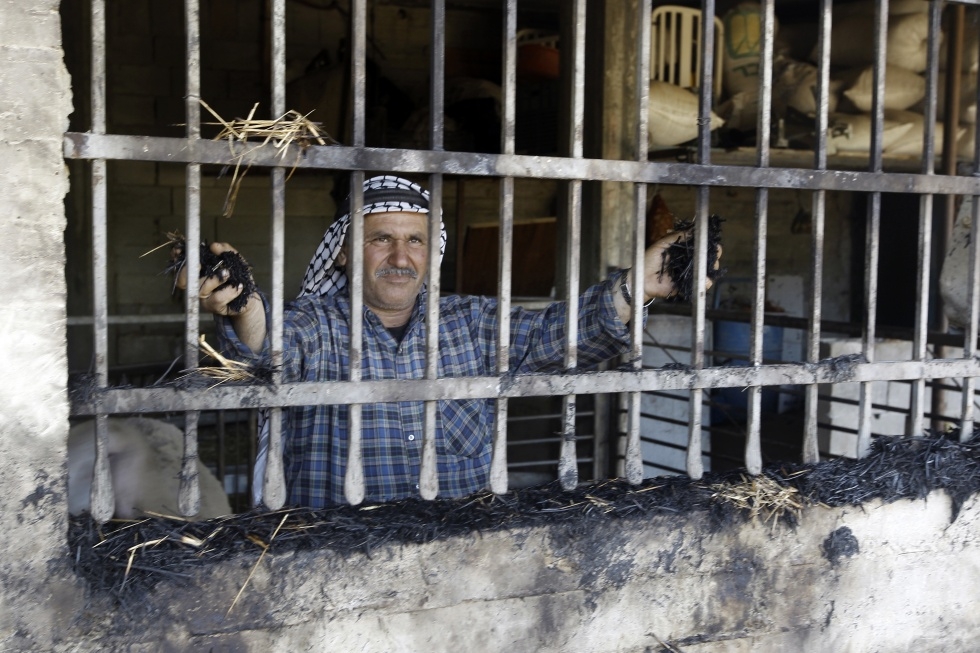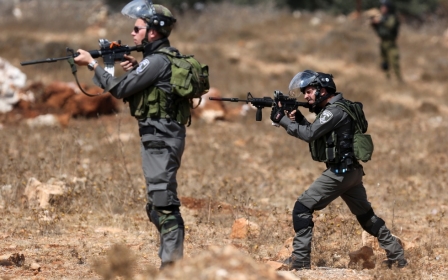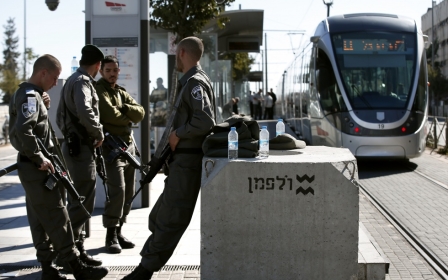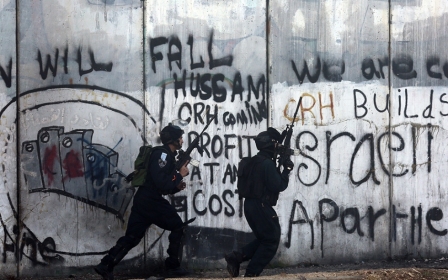Israeli settlers torch Palestinian home in West Bank

Israeli settlers firebombed the home of a Palestinian family in the southern West Bank overnight, causing extensive damage but no casualties, the village mayor and witnesses said.
Five children and two adults were in the house in Yatta, south of the city of Hebron, at the time of the attack, in which several incendiary devices were hurled into the property through a window.
Anti-Arab graffiti written in Hebrew near the property declared the attack had been "revenge".
Yatta mayor Mussa Mhamra condemned the "racist crime committed by settlers who wanted to kill an entire Palestinian family".
Wednesday's attack bore the hallmarks of so-called "price tag" violence -- a euphemism for nationalist-motivated hate crime by Jewish extremists aimed at Palestinian property.
Such attacks began as a reaction to state moves against the settlements but have since escalated into a much broader expression of xenophobia.
Israeli court convicts Palestinian of killing settlers
Meanwhile, an Israeli court on Wednesday convicted an alleged Hamas member of planning the kidnaping and killing three settlers in the southern West Bank city of Hebron in June of 2014.
Hossam Qawasmi was found guilty of planning the kidnapping and the killing of three settlers in Hebron before six months, Israel Radio said.
It added that the Palestinian man confessed that he had planned together with Marawan Qawasmi and Amer Abu Aisha – both killed during an Israeli military operation in Hebron three months ago – to kidnap and kill the three settlers.
The court will sentence Qawasmi later, according to the radio, which said that the man was a member of the Palestinian movement Hamas.
Saleh al-Aroui, a member of the political office of Hamas, previously confirmed that the kidnappers of the three Israeli settlers had been members of the Palestinian faction, but the individuals in question were thought to be acting on their own without orders from their leadership.
Palestinian Authority President Mahmoud Abbas had condemned the kidnapping and killing of the settlers, calling on Palestinian security forces to arrest the kidnappers.
The kidnapping and subsequent killing of the three settlers was one of the reasons Israel used to justify its massive onslaught on the Gaza Strip in July and August.
10 Israeli troops committed suicide in 2014
At least ten Israeli soldiers committed suicide in 2014, including four who took part in a devastating military onslaught on the Gaza Strip this summer, Israeli daily Haaretz reported on Thursday.
According to the newspaper, which conducted the survey, three more soldiers committed suicide in 2014 than in the year before.
It added that Israeli officials were looking into the reasons for the suicides, noting that three soldiers had killed themselves after having taken part in the Gaza offensive while one reservist did so after having been called up for duty during the operation.
Haaretz asserted that suicide among Israeli soldiers in 2014 indicated a "downward trend," claiming that an annual average of 22 soldiers had killed themselves in previous years.
Throughout July and August, Israel conducted a 51-day military offensive on the blockaded Gaza Strip, killing more than 2,160 Palestinians – mostly civilians – and injuring some 11,000.
At least 73 Israelis – 68 soldiers and five civilians – were also killed during the offensive, according to Israeli figures.
New MEE newsletter: Jerusalem Dispatch
Sign up to get the latest insights and analysis on Israel-Palestine, alongside Turkey Unpacked and other MEE newsletters
Middle East Eye delivers independent and unrivalled coverage and analysis of the Middle East, North Africa and beyond. To learn more about republishing this content and the associated fees, please fill out this form. More about MEE can be found here.




